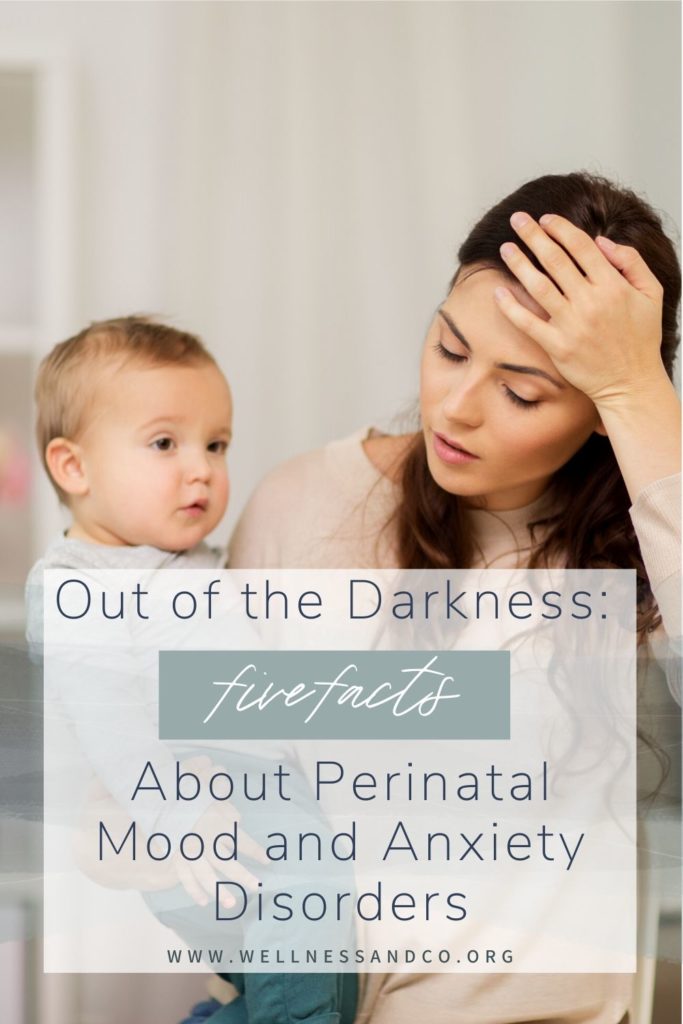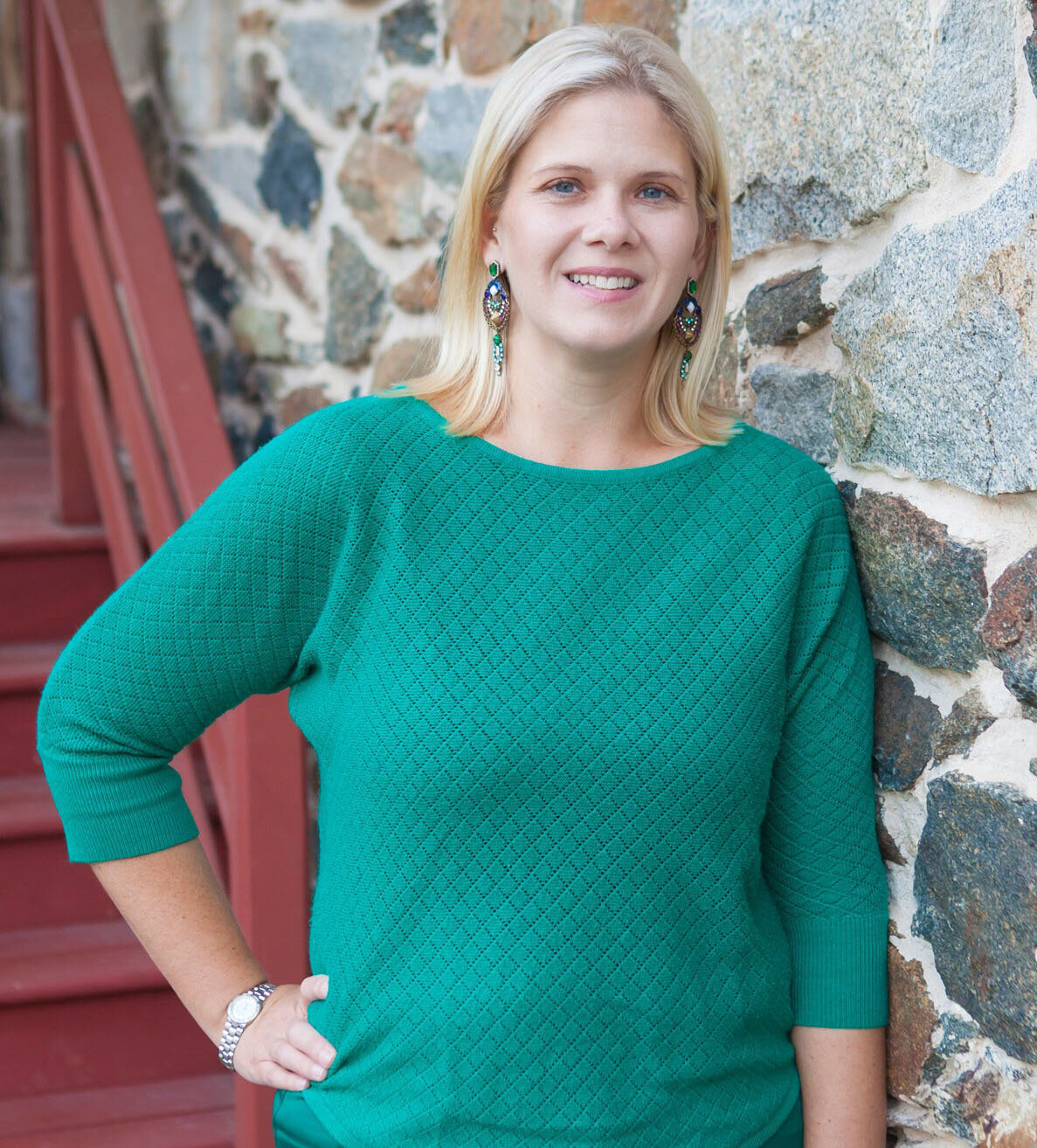Follow
Wellness & Co.
Hi, I'm Dr. K, Wellness & Co. is a growing therapy/coaching practice and educational hub for prospective clients based in Maryland and virtual clients all over the world!
Hi, I'm Dr. K
free guide
e -books
e -course
Out of the Darkness: Five Facts About Perinatal Mood and Anxiety Disorders
May 6, 2020
“I finally had a healthy beautiful baby girl and I couldn’t look at her. I couldn’t hold her and I couldn’t sing to her and I couldn’t smile at her … All I wanted to do was disappear and die. … If I had been diagnosed with any other disease, I would have run to get help. I would have worn it like a badge…”
– Brooke Shields
Today is World Maternal Mental Health Day and I have something really important to share with all the Mama’s out there!

The Backdrop
Has anyone been watching Little Fires Everywhere on Hulu? We just finished last week. It was a great way to pass time while stuck at home.
There’s a scene maybe six episodes in where one of the main characters has her fourth baby. All of her other children are under four years old and the baby won’t nurse and won’t stop crying. The house is a wreck, the other children are crying or toddling around and mom is just beside herself. In her frustration, she accidentally breaks a plate. She stares at it for a moment and then starts to purposely throw plates on the kitchen floor, one at a time, screaming at the top of her lungs each time they shatter. All the kids are wailing and she’s wailing and there’s ceramic plate glass everywhere. It’s a really hard scene to watch, especially if you’ve ever experienced anything like that. It was hard for me to sit through; I identified with it so much.
I Can Relate
When my youngest was born, my older girls were 5 and 3. My baby was unlike anything I had experienced thus far as a mother. She was SO. NEEDY. She cried all the time. She wouldn’t nap outside of my arms (and didn’t for her entire first year). She wouldn’t go to my husband. All she wanted was me. My arms, my boobs, my attention. All. Of. It.
I started to feel completely and utterly trapped. I couldn’t go out alone or she would cry the whole time with whoever I left her with. My own mother didn’t even want to watch her. I couldn’t take a shower without her screaming the whole time. She hated the car and screamed everywhere we went for (no joke, guys) the whole first year of her life. Not just whining or whimpering – this was bloodcurdling, can’t catch her breath, gagging and nearly puking screaming. The number of times I took off my shirt in public and threw it in her seat just to see if my smell would calm her down…well, let’s just say I’m sure many residents of Bel Air have seen me driving my car topless.
My Darker Thoughts
I started to have really upsetting thoughts, thoughts that I felt too ashamed to share with anyone. Thoughts like I regretted having her. Thoughts like I hated her, that there was something wrong with her, something wrong with me. I was angry a lot of the time. I had no patience for my older children, my husband, or even myself.
And then I started having some really dark thoughts. Once I was giving her a bath and “saw” myself holding her under the water. Now, let me be clear – I was horrified by those thoughts. I loved my baby. I would have never, ever hurt her. I couldn’t even let me children cry it out – their distress was mine too. I was just so tired, so overwhelmed. I felt out of my element, useless, and completely and utterly stuck.
Last spring, I took a webinar for perinatal mental health. Sitting in my office listening to the instructor list all the signs of postpartum depression (PPD), I realized that the anger, sadness, and thoughts about harming my baby all had a name.
I suddenly realized – I had PPD with my last baby.
I’m a therapist, working frequently with moms…and I missed it. I mean, as a therapist, I am also a human. And I was also just a mom – an exhausted, hopeless, struggling mom, who felt very alone despite the family, friends, and supportive husband I had. I just couldn’t see it. I was so consumed by how I felt.
We Support YOU
May is Maternal Mental Health Awareness month. Here at Wellness & Co., we are going to be providing information and support for maternal mental health and perinatal mood and anxiety disorder (PMAD’s).
The Facts
First, some facts:
- PMAD’s is a broad term that encompasses any mood (depression, bipolar, or psychosis) or anxiety (generalized anxiety disorder (GAD), panic, obsessive compulsive disorder (OCD) or posttraumatic stress disorder (PTSD)) disorder that occurs in the perinatal period (during pregnancy or the postpartum period) and gets in the way of daily functioning.
- PMAD’s can affect anyone! Mamas with money and mamas without. Mamas who wanted and planned their babies and mamas who didn’t. Moms with doctorate degrees and those who didn’t graduate high school. It does not discriminate.
- PMAD’s affect 1 out of 7 women and 1 out of 10 men. That’s right – PMAD’s CAN affect dads as well.
- The risks of untreated PMAD’s are vast, including: relationship problems, poor adherence to medical care, separation or divorce, alcohol or drug use, unemployment, and in some extreme circumstances, infanticide, homicide, or suicide.
And finally, probably the most important:
- The “baby blues” does not last longer than two weeks. That’s right!
If you are over two weeks postpartum and feeling symptoms of depression or anxiety you need to be evaluated for a perinatal mood disorder. The baby blues is truly an adjustment to hormones after you give birth and is not related to stress or psychological illness. They peak at 3 to 5 days after birth and resolve on their own.
PMAD’s are different – they need treatment to resolve. They will not go away, no matter how much time passes.
We are going to spend this month talking more about different PMAD’s. Our hope is to educate about these very important conditions, to take the shame out of them, to bring them out of the darkness and into the light.
If you or someone you know is suffering, please know that it is not your fault, there is help available, and you can get better. Please reach out to us at Wellness & Company, the Harford Crisis Center, or call 911 if you feel like you may hurt yourself or your baby.
You deserve help and it is there for you!
Wellness & Co. is also offering drop in support groups for moms in a group called Mom’s The Word: A Confidential Support Group for Moms with different topics offered every Tuesday at 1:00 pm. This group is open, meaning there is no commitment – you can come one week and not come the next. It is also open to everyone, even those outside of Maryland.
To keep up with our weekly topic changes, please follow us on Instagram or like our facebook page.
Also, if you join our mailing list you will not only get group updates, but also updates on all the awesome things we are doing at Wellness & Co. to support the community and the people in it.
Join the mailing list now and you’ll receive a FREE E-guide exploring Ten Signs You Might Be Experiencing Birth Trauma!

You are not alone, mamas. We are here for you.
With grace and love,
Erin
Erin Newton has been working with individuals and families for almost nine years now. She specializes in perinatal mental health, birth trauma, and anxiety related issues. She strives to help her clients feel seen, heard, understood and to give them the tools they need to start their own journey of healing.
Leave a Reply Cancel reply
CONTACT
Start Here
BLOG
OUR TEAM
SHOP
ABOUT
©2025 Wellness & Co. | All Rights Reserved | Design by EverMint Design Studio
BACK TO TOP
connect with us on instagram
